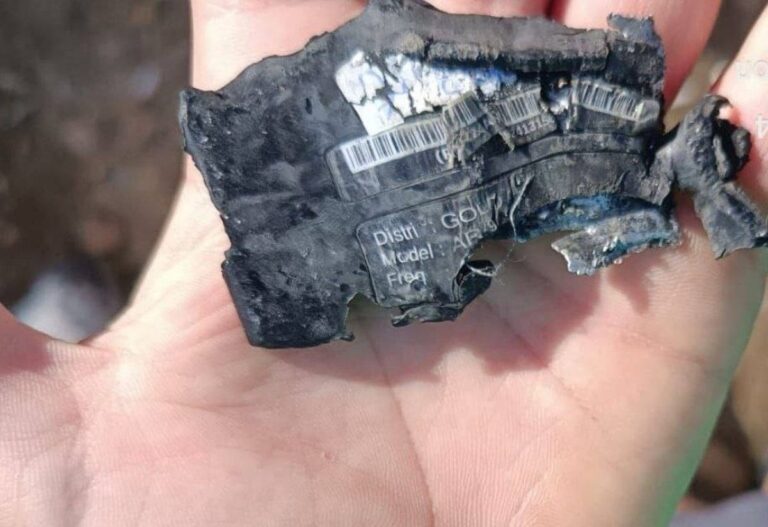By: Rav Yitzchok Fingerer
Life isn’t easy. We experience so many challenges and tribulations. Everyone falls. No one is perfect. We err; we mess up. We feel low. We feel down. We feel dirty. We say things that are inappropriate. We look at things we shouldn’t. We make promises that we don’t keep. We set goals that we don’t meet. We’re at the brink of giving up.
Next time you fall, before you paint a squalid picture and discredit and disqualify yourself, think about the following:
The highlight and pinnacle of a mother’s life is when she gives birth and cradles her newborn in her arms. There’s no greater joy. She is euphoric. Why then does the Torah ordain, precisely at the time of birth, Tumah, ritual impurity, for the mother? Rav Menachem Mendel of Kotzk, the Kotzker Rebbe, says that this seems so inconsistent and incongruous. Just when the woman is at the zenith of her life, it seems that she’s precipitously demoted from her glory.
The Gemara (Taanis 2a) says that the key to childbirth is exclusively in Hashem‘s domain. The Kotzker Rebbe says a phenomenal idea. He explains that throughout the gestation period, the Shechina, Hashem’s presence, is manifest, nurturing the pregnancy. When the baby is born, the Shechina departs. The woman is now bereft and devoid of the Shechina. The consequence of this vacuum is the impurity. This means that the impurity is not a punishment or condemnation. Rather, it is a reflection of the greatness and holiness of the woman. It is precisely because she is so holy that the impurity seeps in. The impurity is a direct result of the great holiness she contained.
Feeling at a low point? Feeling down? Feeling dirty. Don’t give up.
Listen to the Heilige Kotzker: Do you know why you feel so low and dirty? It is because you are so holy! If you weren’t holy, you’d feel absolutely no void, emptiness, longing or pain. Don’t crash. Don’t despair. You’re feeling impure, precisely because you’re so holy. You’re almost there. With a loving Rav and supportive chaveirim you will propel yourself to ever greater heights and realize your holiness.
Too often, we don’t appreciate or recognize how intrinsically special each and every one of is.
When a person whose house is afflicted with Tzaraas comes to the Kohen, he doesn’t say “I have a negah.” Instead, he says “I have seen an appearance of a negah.” According to the Mishna, even if the resident himself is a qualified scholar and can readily diagnose the negah, he is not allowed to say explicitly to the Kohen that he has a negah. Rather, he is only allowed to make allusion to the fact. Why is that? Why can’t he declare, “I have a Negah”, which seems to be the obvious truth? Why sideskirt the issue and engage in euphemisms?
This question is addressed by eminent Torah commentaries, ranging from Abarbanel, Mizrachi, Maharal and Tosfos Yom Tov to Rav Moshe and the Chazon Ish. Numerous explanations are given for this seemingly strange ruling. I’d like to focus on one reason. Rav Chatzkel says that the reason why the homeowner must speak so imprecisely is because one must never invalidate himself. One should never disparage, disqualify or discount oneself. Therefore, he can only say “k’negah” not “negah.”
What a lesson. Why does the Torah forbid even the most knowledgeable and erudite talmid chochom from rendering his property Tameh? In order to impress on each and every one of us how important it is for us to believe in ourselves. Remember you’re great, you’re holy. You’re an integral part of the Am Hanivchar and Am Segulah! Don’t give up!
This is a cardinal rule that every mechanech and parent must take to heart. Our job is to build, empower, and make holy not, chalilah, to denigrate, destroy or profane. The word chinuch is etymologically derived from the word “to inaugurate and consecrate.” It’s our sacred duty to inaugurate and consecrate the next generation with loving and encouraging words.
Rav Yitzchok Fingerer is Mora D’Asra of the BJX Beis HaMedrash in Brooklyn (www.bjxcenter.com). and a renowned speaker and author.
BJX is acclaimed around the world for its inspiring davening and the Rav’s uplifting drashos. Kabbalas Shabbos is 7pm (preceded by Mincha), Shabbos morning davening is 9:05am, followed by a hot kiddush. Sunday morning shacharis is 9am, followed by breakfast and a fascinating Sheilos UTeshuvos shiur on contemporary sh’eilos. Monday through Friday davening is 7:30am, followed by breakfast and morning seder.
NOTE: The views expressed here are those of the authors and do not necessarily represent or reflect the views of YWN.
DO YOU HAVE AN OPINION YOU WOULD LIKE TO SEE POSTED ON YWN? SEND IT TO US FOR REVIEW











